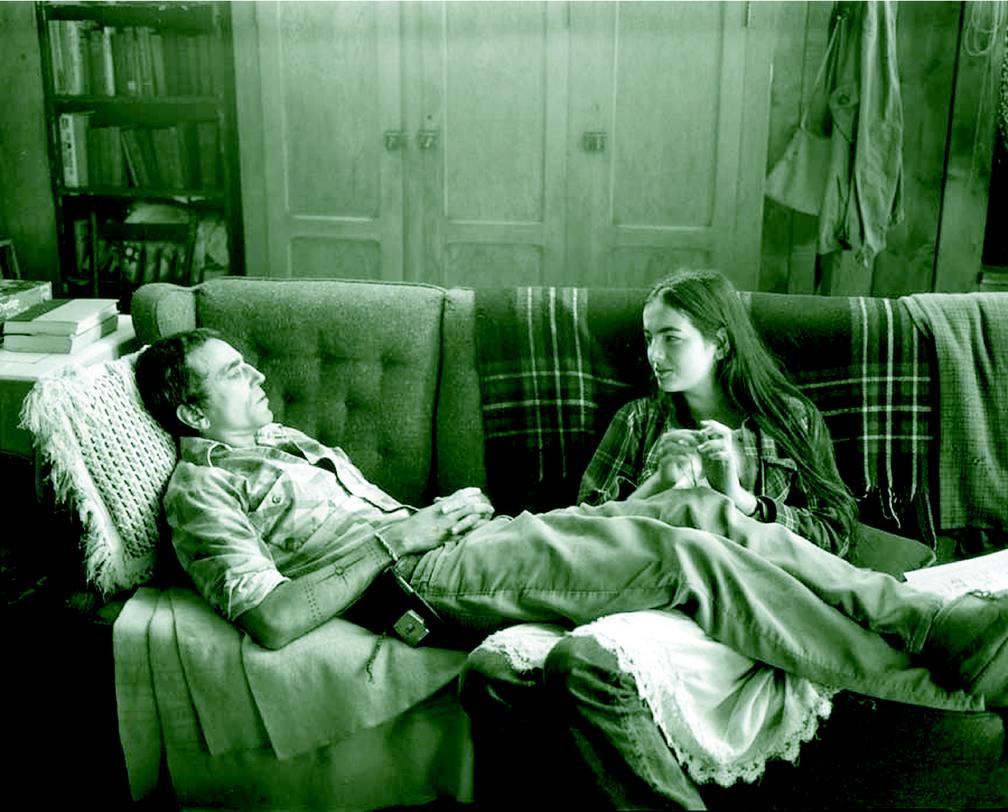Miller, daughter of playwright Arthur Miller, was an actress for a number of years before transitioning to the world of writing and directing. She made a mark on the indie film scene in 2002 with her cinematic triptych Personal Velocity. Like that previous actor's showcase, The Ballad of Jack and Rose is a dramatic portrait of people at a crucial juncture in life's journey.
In The Ballad of Jack and Rose, Day-Lewis plays Jack, father to Rose (Camilla Belle, a young actress with nearly 20 films already to her credit). Set in the mid-'80s, the film takes us to an unnamed island off the East Coast of America. There, Jack and his adolescent offspring live an idyllic off-the-grid existence in a crumbling hippie commune. Although his idealistic compatriots (not to mention his wife) have long since abandoned the alternative lifestyle, Jack sticks to his guns, raising his own chickens, building wind generators and engaging in the occasional act of eco-terrorism against a local land developer (played to grumpy perfection by Beau Bridges).
Unfortunately, Jack is dying of an unspecified heart condition. It won't be long until his well-sheltered, home-schooled daughter will be left to fend for herself. Smart, mature, but emotionally confused, Rose is not taking her father's fate well. If he dies, she insists, she'll simply commit suicide.
Obviously, Jack needs to nip this little problem in the bud. (So to speak.) Looking for a way to ease his daughter into civilization at large, Jack rather impetuously asks his occasional girlfriend to move in with them. An aging townie with few prospects, Kathleen (the always-welcome Catherine Keener) gladly drags her two teen sons, one sensitive (Ryan McDonald), one surly (Paul Dano), with her and tries to start a new life in Jack's rambling post-hippie estate.
Rose, unaccustomed to the company of anyone but her doting father, does not take well to these newcomers. In addition to typical rebellious behavior like trying to lose her virginity, Rose makes several attempts to kill Kathleen. Ah, kids today.
The Ballad of Jack and Rose is a well-written, poetically directed and obviously very personal saga. (One can only assume Miller is exorcising certain demons about her own rather towering father figure.) The feelings on display are complex and dealt with in a mature manner.
Rose is a girl who has grown up well in many ways. But, with her father as virtually the only figure in her short life, her emotions are seriously out of whack. She reacts to her father's new “wife,” not as a petulant daughter, but as a jealous lover. Though the film skirts the issue of actual incest in a poetically symbolic way, it is more than clear that Rose has an emotionally incestuous relationship with her father. He has made her far too dependent on him–a fact old Jackie-boy is realizing a tad too late.
Toward the end, the film's various themes stack up a bit too fast and furious (from awakening teen sexuality to environmentalism to Oedipal jealousy to the disenchanted aftermath of countercultural idealism). Miller seems to want to explore one too many avenues, and the result leaves the narrative feeling a bit frayed. That, combined with her occasionally heavy-handed symbolism (bees and flowers for sexuality, snakes for sinful behavior) gives the film a self-conscious and overly mythic tone–the Brothers Grimm meet Freud on the set of a psychosexual coming-of-age drama.
Shortcomings aside, the film is sharp and mature and full of thought-provoking moments. Perhaps the best way to say it is to dredge up that old truism that the parts are greater than the whole. There are plenty of individual moments here that stand out in sharp relief–thanks mostly to Miller's solid choice of actors. Belle is perceptive. McDonald is low-key and memorable. Day-Lewis throws himself body and soul into his role and scores some fine scenes. (His final confrontation with mortal enemy Beau Bridges is one of the film's most perceptive.) All I can is, It's a good thing Ms. Miller married Daniel Day-Lewis and not Robin Williams.



